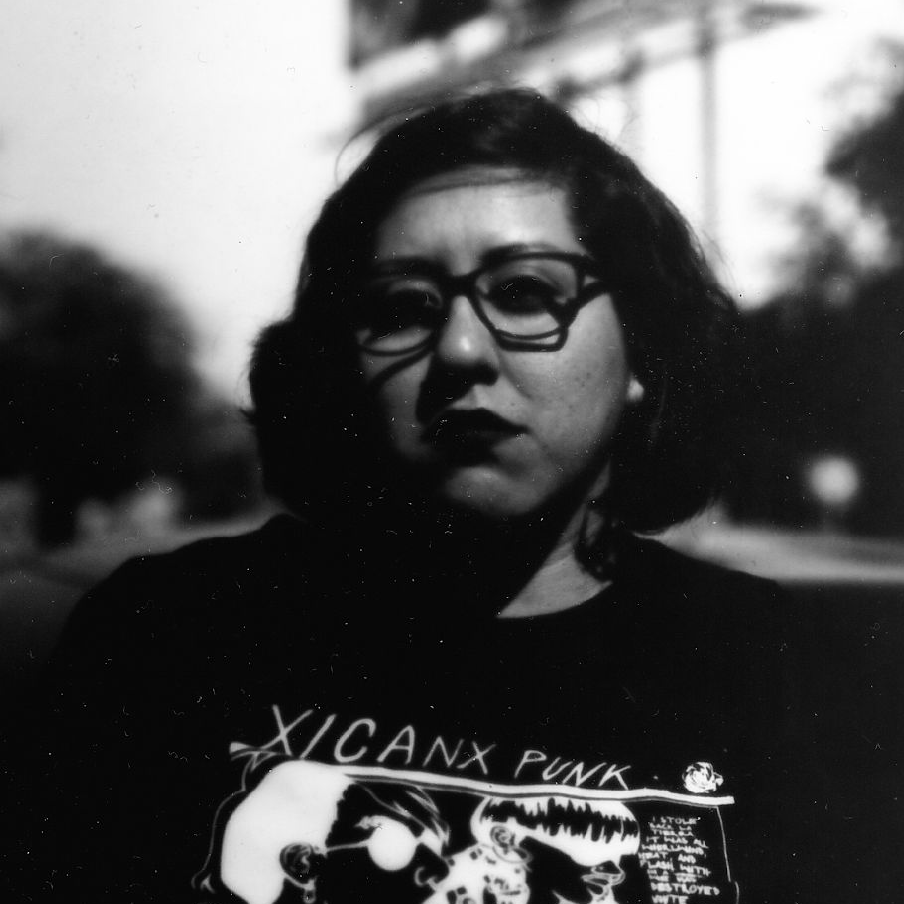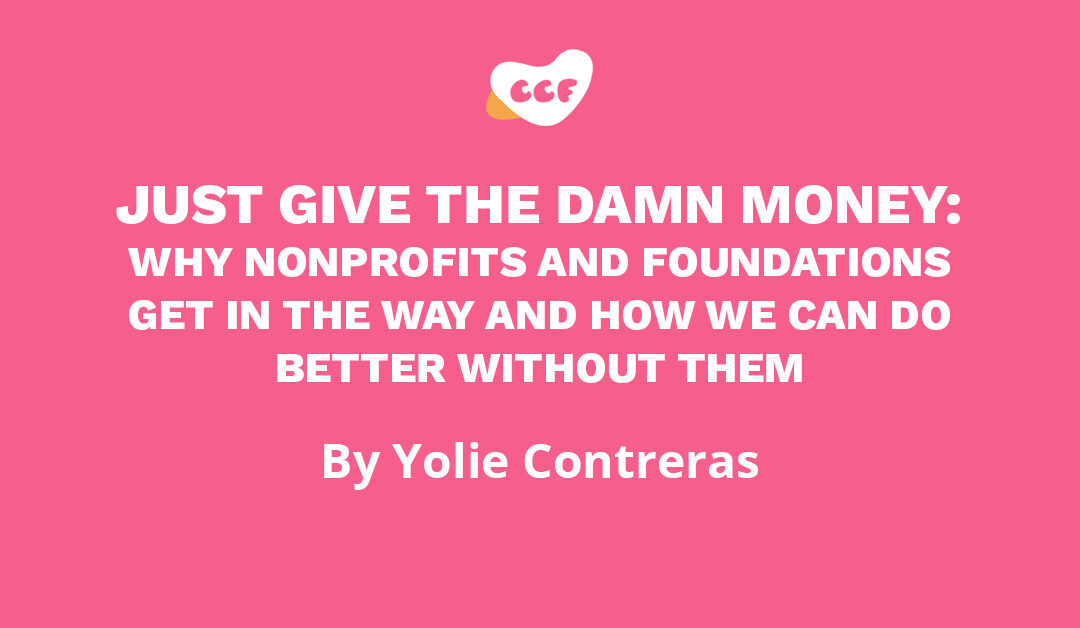By Yolie Contreras (she/her), fledging fundraiser and Zinester
Why are nonprofits and foundations getting in the way of mutual aid?
It might seem like an easy question to answer, but it’s loaded with layers and layers of white supremacy, gaslighting, and othering. As we know, the nonprofit industrial complex is this tangled web of boards, applications, qualifications, etc.
But how did we get to a point where the complex would actively hinder mutual aid projects that are engaging in and doing meaningful, grassroots work?
Factors contributing to our toxic nonprofit and foundation funding system
When you veer so far away from mutual aid and toward nonprofits, you remove the voice and agency of people who are actively living under multiple avenues of oppression.
One factor is that white people have dominated nonprofits since their inception and have moved away from trust-based practices to arbitrary criteria. Operating on trust should be the ultimate goal when offering support and solidarity. Funding shouldn’t be withheld for not meeting certain criteria that a mostly all-white board has deemed important.
Nonprofits that are created by white people are inherently for white people. When you are not honoring and involving the people directly affected by the issues you are trying to fix, you are removing the very essence of this work. When you veer so far away from mutual aid and toward nonprofits, you remove the voice and agency of people who are actively living under multiple avenues of oppression.
Some of you might not know that there is a very distinct difference between nonprofits and mutual aid. The quick version is that once upon a time, wealthy white people felt that it was their “duty” to give back in some way to society, which included donating to causes. This is already a problem because now we have rich white people taking it upon themselves to create clubs, causes, and organizations that they deemed worthy enough to support. They then created rules and processes to access this support, denied those in the most need, and decentered the voices of people with lived experience in favor of the “right” way to give. We see the legacy of this history within most nonprofits and foundations today, with their long-winded grant applications, reports, qualifications, requirements, etc.
Mutual aid, on the other hand, has been in practice for thousands of years but really came into prominence over the last 100 years or so through community organizers and activists. One of the best examples of mutual aid is when the Black Panther Party created a free breakfast program (among other community programs) that fed thousands of hungry children. This was later co-opted and monetized by the federal government.
See a theme here? What nonprofits generally do is no better.
Especially when larger and more well-known nonprofits swoop in and completely overshadow existing organizers while hoarding all of the available resources.
How many movements have been built and sustained by Black and Brown people, only for a larger, mostly white, nonprofit to overstep and barrel through? Then these same organizations go on to ignore Black and Brown people in favor of centering their own “mission.” In the end, replicating a lot of harmful white supremacist actions.
If you ask me, you can’t fix or defund an organization that was built upon white supremacy and white saviorism. It needs to be completely abolished. I don’t care how many DEI classes the white folks at these nonprofits and foundations want to take. If you are not involving and centering those that can actually speak to different aspects of marginalization, then what are you doing?
How we can detoxify and better support our communities
In the end, embracing mutual aid is decentering whiteness and white saviorism because you are giving your money directly to people being actively marginalized.
You may now be asking, how can we begin to move past this toxicity? For one, let’s not just look towards the “popular” nonprofits out there. It’s not always best practice for one organization to be the face and voice of people who are actively being marginalized. Find what mutual aid groups are out there doing the work for causes you want to support. Utilize social media to follow hashtags for organizations. There are so so many mutual aid groups out there and mutual aid requests directly from the people. You just need to look.
Another idea is to just give the damn money already, honestly. Donors need to shift their giving away from an intermediary, such as a nonprofit, and pay Black and Brown folks directly. Take the time to examine your own thoughts and approach toward donations. When you give money, what are you expecting? A thank you note? Acknowledgment? Do you want this “gift” to only be spent in a certain way? I gotta tell you, at that point, it’s no longer a gift, but a transaction, and I am not in the business of selling you anything.
High-profile nonprofits: share your large platform highlighting mutual aid groups that are led by People of Color and others who are navigating society under multiple identities. Offer partnerships to groups with small budgets, be a mentor and share access to resources. Turn down money and recommend others if you find you have enough. You’ll have plenty of opportunities, I assure you.
In the end, embracing mutual aid is decentering whiteness and white saviorism because you are giving your money directly to people being actively marginalized. You don’t need a nonprofit intermediary in order to show your support, give freely and without strings. I’m sure the people that you want to support will appreciate it more than you’ll ever know.

Yolie Contreras
Yolie Contreras (she/her) is a Salvi-Chicanx writer, fundraiser and neurodivergent babe. She believes that words and actions matter, and as long as systems of oppression exist, it is our duty to dismantle them. She is a freelance nonprofit consultant and you can learn more about her services here. When she’s not working, Yolie spends her time restoring dollhouses and drinking iced coffee. She currently lives in Tucson, AZ with her husband Billy and their cats named Ricky and Fred. Find her on Instagram @Yolie4u. Send her a tip via her Venmo, Yolie4u.
Discover more from CCF
Subscribe to get the latest posts sent to your email.


YES! Just give the money already!
PREACH Yolie PREACH! Another great article, thank you. Let’s meet for lunch and more venting of funder ridiculousness? Email me and let’s set it up.
I agree wholeheartedly